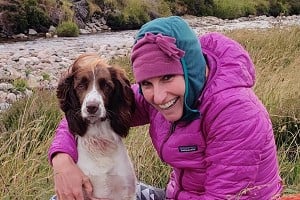
War, Death and Rubber Climbing Shoes
37-year-old climber Jamie Simpson's grandfather was a quiet man who never bragged about his achievements, rather unusually he kept them in a mysterious brown leather suitcase.
Living as Jamie did in Howtown, in the North Lakes, it was perhaps natural Jamie would become a climber.
But he never realised how much he and his grandfather had in common until his mother, inspired by his activities on the rocks, handed over a battered suitcase he remembered vaguely from his childhood.
Inside Jamie found a window into a 70-year-old climbing community.
“Grandpa was a very quiet man,” says Jamie, “my mum loved him so very dearly, and when I took up climbing I think she saw a progression of philosophy between her dad and me.”
The suitcase contained a faded old journal with notes from the meetings of a mountaineering club called the Bergensteigern – German for mountaineers. They met at the Jet Miners public house in Middlesbrough from 1939 -1941.
Conditions of membership were:
- Each member must by his own effort have climbed crawled up or arrived at by any other means the top of one of the heights of the Cullins.
- Each member must be a decent guy, bloke, fella, chap and companion (gentlemen admitted in certain cases).
- No member must on any day of the club (or any other day either) leave, deposit or scatter orange peel, broken bottles, loose limbs or any other litter amongst nature.
- No member may be admitted without unanimous approval of the other members.
Difficult as the minutes were to make out they depicted the Bergensteigern's as a tight knit group of young adventurers.
“The minute taker was usually so inebriate his scribbling was almost illegible,” says Jamie, “so as they went through the committee routines with things getting worse or better depending on how you see it.”
On top of this they were often written in dialect and faded pencil – even in tomato sauce after one meeting was held above the local chippy. Deciphering the volume became a labour of love for Jamie.
It details the exploits of the members – mainly J. Gash (Squiff) Hon Treasurer and Hon Sec, C. Barker, Chief Guide, F.C. Stainthrope, A. Buckley, J. Brown (Hon Doctor) and T.A Hanson (Otto Von) who was the quiet man Jamie knew as his grand father.
Throughout 1938 the club made plenty trips both local and elsewhere.
An entry from September 16 details a discussion about whether the club should join a hostel movement. “After much discussion it was turned down as we thought it rather inappropriate to associate ourselves with a movement for furthering the growth of these brothels and sinks of integrity.”
“Do all mountaineers consider themselves to hold high ground?” asks Jamie with a quizzical look, “even modern mountaineers who like to consider themselves part of a classless activity have complex and in-depth hierarchies.”
“Many traditional climbers would not consider their activities the same as sport climbing but to the casual observer it's all lunacy. The Bergensteigerns felt the same and recorded it with sarcastic wit.”
The club visited Bowfell and Langdale in the Lakes where they ate breakfast at Dungeon Ghyll Hotel, which is still there today. The members were carefree and climbed regularly, but as ever the rain clouds weren't far away.
An uncertain political mist that had been drifting across Europe and was building to dark clouds as the minutes April 11 recorded.
“Our usual walk took us to the Wain Stones,” record the minutes, “when our near relationship with Hilter was discussed, that was, in the event of war should we disclose our identity to him or adopt isolation, after much discussion it was decided to let war adopt its own course and we would generally abide by it.”
“It was agreed conscription was a fine thing as we were all too old to go” continue the minutes, “also things were said about the tax on cars and it was agreed that Chamberlain could under no circumstances become an honourable Bergensteigern but could associate himself with the spawn who inhabit the brothels of hikers.”
By ten thirty following this meeting the party was still sober – a very rare thing indeed.
Though war had a somewhat sobering effect it didn't dampen the member's spirit of adventure and they set the annual general meeting in Keswick and arranged to meet the following Sunday at Napes Ridge.
Over the years Pillar Rock became something of a project for the club who returned to it over and over again.
A trip to their project took place on 20 August 1939 where they climbed normal shoes and “natty Austin Reed suits”.
On this trip Jamie's grand father, Otto, clocked up some impressive routes and became something of a hero to the rest of the members while F.C. Stainthrope was dragged up a 12ft pitch.
“Buckley a charitable soul,” say the minutes “swore Stainthrope did touch one of the holds – but it was with his backside.”
“One incident worth mentioning,” they continue, “on the return journey was the indiscretion of Chas Barker who was determined to gladden the heart of a female from a cycling club."
“The woman of uneasy virtue loitered around the parking ground casting feverish eyes on his massive limbs. It was noticed he lingered unduly over his disrobing."
“Happily the old blast from the Northeast wind was sufficient to discourage the naughty passions engendered by the loitering female.”
Shortly after this outing Doc Brown was posted to Glasgow and thereby elected by the club to the prestigious post of ambassador for Scotland.
In honour of the Doc's new post the members began calling themselves by Scottish names and the club became the Clan. The Doc was known as MacTavish ever after.
Only Otto continued being called with his original name, perhaps out of pride, despite the now dangerous association with Germany.
A few weeks later in September 1939 Britain declared war on Hitler – the drifting storm clouds had arrived with thunder.
At this point journal entries echo the atmosphere of the country becoming urgent and to the point. Little about climbing is mentioned until the group decide to offer the strongest support they can to Norway, which was by then being threatened by Hitler.
They came to this conclusion because it was a mountainous country – one a couple of the members knew well having visited on a number of occasions.
Following a long night in the air raid shelters the group was shocked when the amorous Chief Guide, Chas Barker, tuned up to a meeting in Air Force blues informing them he was joining the RAF.
People didn't want to be far from home. Food and fuel rationing began to bite hard and naturally meetings and trips became less and less frequent.
1941 began with sunny optimism when Otto was invited by Chief of the Lakeland Club, Bob Holmes, to their annual Hon Pro Supper and to make an attempt on an impossible new pitch.
The reputation of the club had clearly begun to grow, but interestingly Otto managed to slip out of this particular appointment.
It wasn't long before clouds returned to cover this sunny spell when questions of the club name Bergensteigern and its association with the country they were at war with were raised.
Squiff handed over a letter from a local patriarch which contained a 10 shiling note towards fund. It outlined reasons why the club should change its name. The note was deemed to be a bribe.
But clearly with war literally raining down on them any association with Germanic words was distasteful and so the club voted to change the Der Bergensteigern name to another.
It was decided they become know as the Bergers. They thought this word was Nordic in origin (it unfortunately isn't) and they toasted it in the usual way. Otto gave a speech which the minute taker failed to catch the gist of – probably due to the amount of alcohol he'd consumed.
Next sparse coded entries make reference to secret meetings which had taken place while the group walked around local woodland.
The reason becomes clear when Otto changed his name, because its Germanic sound had begun to attract unwanted attention, to McNab.
The following Sunday a usual outing to the Wain Stones took place, where something every unusual happened.
“Prompt start was made,” record the minutes, “the usual men were in bed at the usual time, the usual man being ready at the usual time, the chief guide attempted, I say attempted to belie his past errors on the rock by donning rubbers (!)”
This was the first time any of the group had worn rubber soled climbing shoes and it was most certainly frown on by the rest of the group. It was considered an “indiscretion to the rocks themselves”.
On June 1941 the group made their final documented trip to the Lakes. They almost certainly went there for another attempt on Pillar Rock, but it is unclear from the records if they ever sent their project.
“My mother told me Doc Brown fell ill and died in Glasgow,” says Jamie “and needed penicillin, but all the stocks were required for the frontline and he died even though the medicine was stacked outside his surgery door.”
Jamie now works in Norway as a freelance geologist.
This article was submitted by Jamie Simpson and re-worked and edited by Daniel Johnson

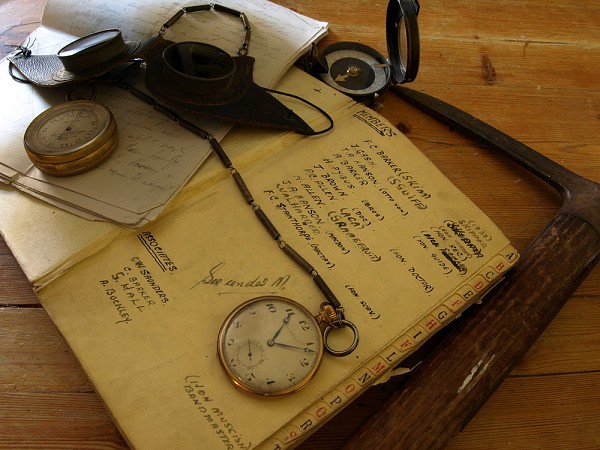
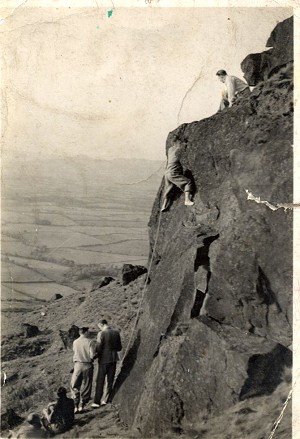
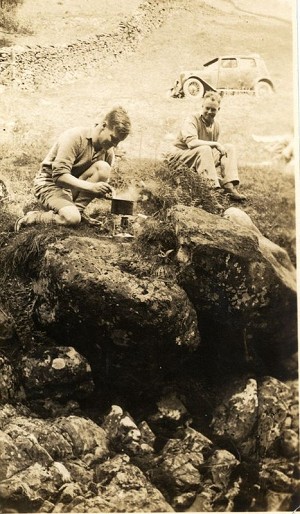
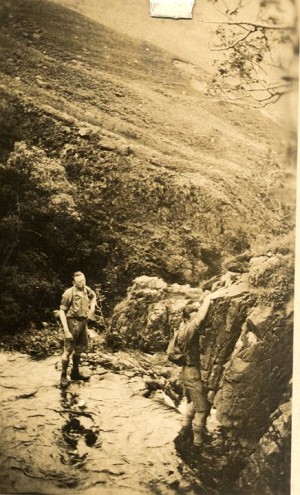
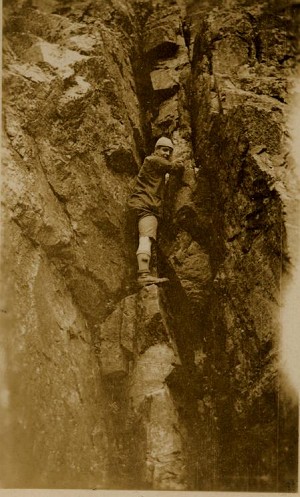
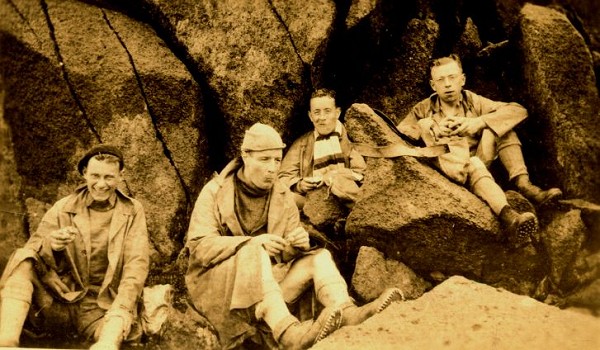
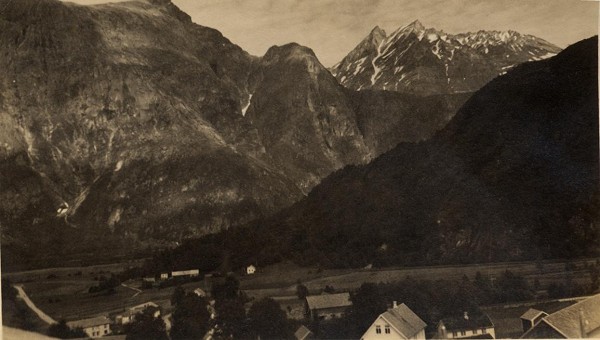
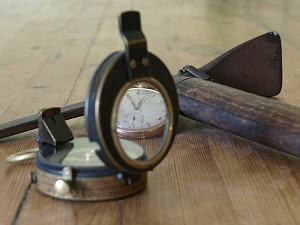
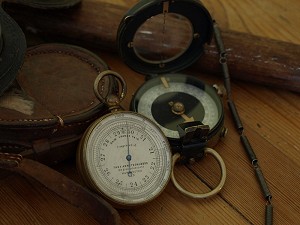
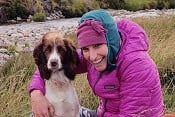
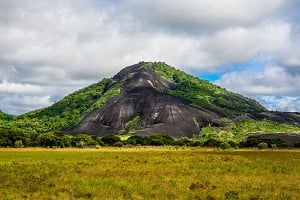
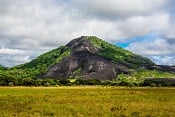
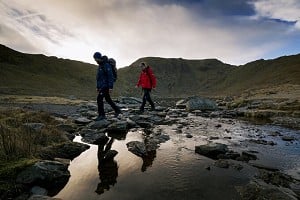
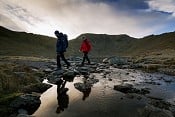


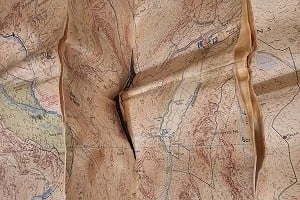
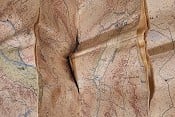
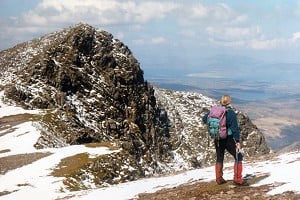
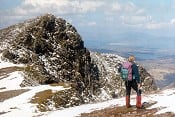
Comments